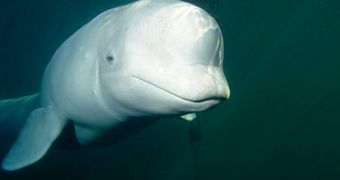Political interests were dealt a severe blow recently, when the U.S. federal government decided to place the beluga whale populations living in the Cook Inlet under the sanctions of the Endangered Species Act. While Alaska governor Sarah Palin opposed the decision, saying the whales were recovering, further scientific studies conducted by researchers at the National Oceanic and Atmospheric Administration (NOAA) place them in severe danger.
This is the second time Sarah Palin opposes environmental decisions, with the first time being last year, when she pleaded that the polar bears not be included in the same Act, though clear evidence of polar bear populations declining existed at the time. The truth is that the Cook Inlet is estimated to have over $1.38 billion in energy stored in the waters of Alaska's coasts.
As a matter of fact, NOAA scientists blame the severe decline of the beluga whale population in the area, from 653 in 1995 to 375 this year, on ever-increasing numbers of oil exploitation platforms in the region. Considering the fact that there are only five areas in the entire world where these whales live, environmentalists argue that it's absolutely necessary for the government to preserve this specific population and, if possible, to offer these whales all the conditions they need for their numbers to recover.
Although the numbers and statistics are clear, Republican running mate Sarah Palin strongly objected to the introduction of beluga whales on the Endangered Species Act. To back up her demands, the Alaska governor came up with fictional numbers about whale population. They were proven fictional by another survey, conducted by NOAA earlier this year. The report that followed the study led to the listing of the whales in the Act.
"This ends the debate about whether the beluga should be protected (...) and starts the critically important process of actually working to recover the species and protect its habitat," said Brendan Cummings, an environmental activist working with the Center for Biological Diversity. Similar groups have petitioned the federal governments for this measure ever since 2006. Regardless, they expressed their satisfaction with the official decision.

 14 DAY TRIAL //
14 DAY TRIAL //